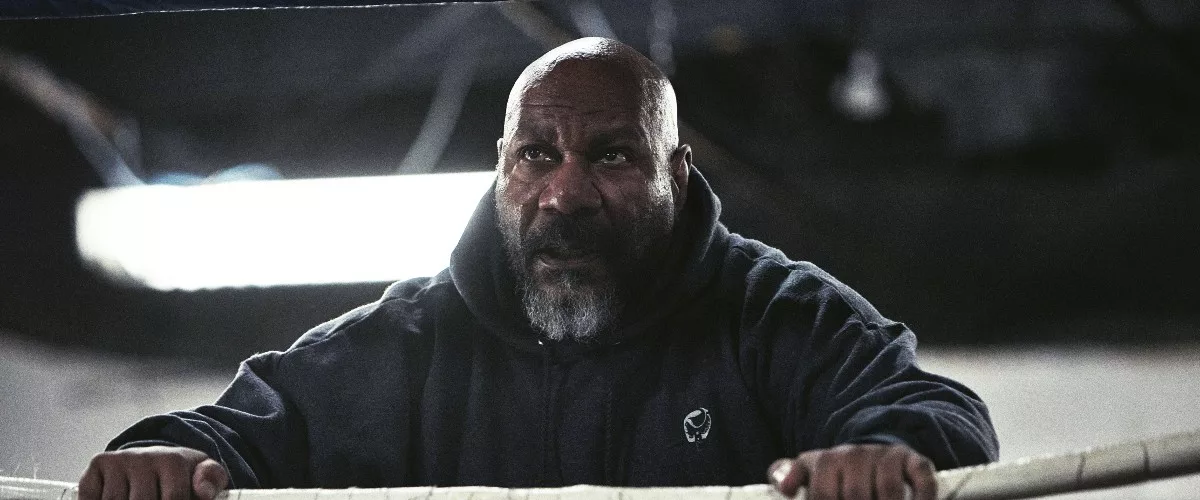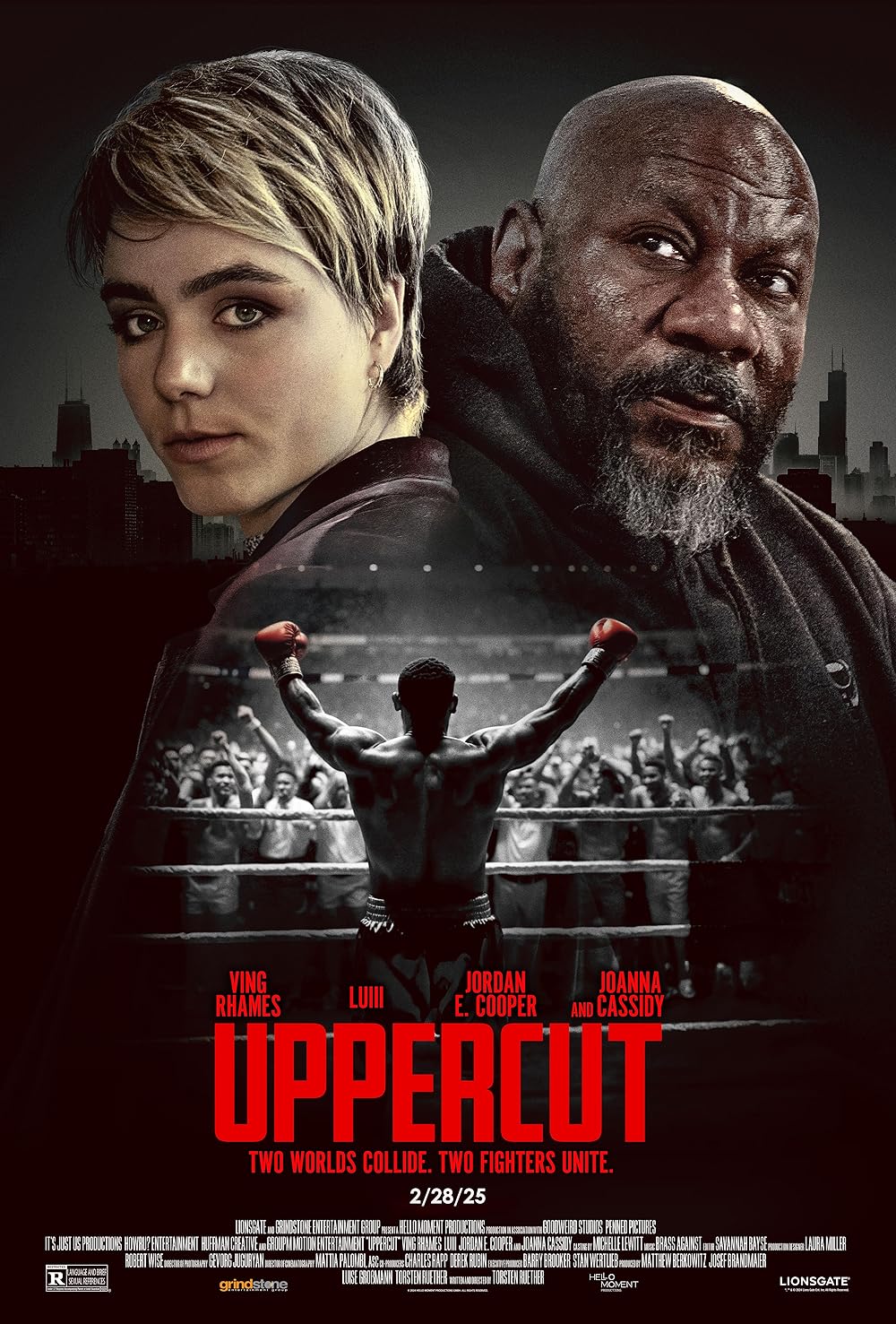In its surface details, “Uppercut” is reminiscent of “Million Dollar Baby” (without the euthanasia). A young German girl, adrift in Bushwick, entreats an older ex-boxer to train her. He doesn’t want to. She pushes. He relents. But there’s a lot more—in fact, way too much—going on in “Uppercut,” written and directed by Torsten Ruether. “Uppercut” feels like it’s two different movies, or maybe two short films, jerry-rigged together into a feature. The central event—a late-night conversation/training session between a wannabe boxer and a tired boxing coach—carries some interest, due primarily to the presence of Ving Rhames, who does all of the heavy lifting, acting-wise.
“Uppercut” starts with Toni (Luise Großmann), a glamorous boxing manager, giving the boxer she handles a pep talk before a big fight. She’s like Lady Macbeth in her jeweled pantsuit, frosted tips, and ferocious manner. The roar of the crowd is heard above the locker room, and Toni watches the bout on the television, all while arguing with her husband on the phone about what to do with their sick daughter. The bickering conversation goes on forever, all as Toni paces, throwing glances at the television to see how her fighter (Jordan E. Cooper) is doing.
Cut to: eight years earlier.
Toni wanders the streets of Manhattan, a wispy flâneur eating a pizza slice, stopping to watch some hip-hop dancers, sitting on bleachers deep in thought. There’s no glimpse of where she lives, what she does for money, who she is. Following a tip from a friend, she goes to a boxing gym after hours, looking for the owner, an ex-boxer named Elliott Dufford (Rhames). He tells her to leave. Somehow, she wheedles him into letting her stay, and the two end up talking all night. They do a couple of training-type things, too, but it’s mostly talking. This long scene is interrupted by flash-forwards to pantsuit Toni, still yelling at her husband about their child with a runny nose. If tension is supposed to build between the two timelines, it doesn’t. Mixed in, there are flash-forwards to other spots in the timeline, where Payne demands that a very pregnant Toni represent him. There are also very confusing sequences showing Payne’s fight, happening while Toni is not paying attention.
Clearly the main event is the late-night convo between Elliott and Toni. They talk about boxing. He introduces her to Buddy Guy. (Eight years later we learn Toni’s daughter has a stuffed animal named Buddy.) Elliott makes her dance to a Buddy Guy record, to show him what her rhythms are (I guess). Toni swaying around in a trance, feeling the music, doesn’t seem to have much to do with boxing, and yet it’s filmed like it’s a transcendent moment for her. Improbably, she opens up to Elliott about a new guy she’s seeing. It’s hard to believe Elliott would want to stay up until 1 o’clock in the morning listening to a total stranger 40 years his junior talk about her boy problems.
“Uppercut” suffers in comparison to last year’s “The Fire Inside,” about 2-time Olympic gold medalist Claressa Shields. Shields’ background was rough, and her father, once an underground boxer, passed on his love of the sport to her, but he was in prison for much of Shields’ childhood. Shields had to overcome being a girl in a man’s sport, but her sheer determination to get in the ring won out. “The Fire Inside” does what “Uppercut” doesn’t do. Shields makes sense as a character. Toni doesn’t.
In the few training exercises Elliott puts her through, Toni whines, or resists, or gets hurt. A cut on her eyebrow is treated like Rocky Balboa getting his eyelid sliced open during the big fight in “Rocky”. I’m not a boxing expert but even I thought, “No way does this girl have what it takes.”
Why does Toni want to be a boxer? It seems like this would be pretty important information. She tells Elliott something about wanting to work hard for something because everything was handed to her in life. This isn’t a motivation designed to get an audience fired up or on her side. Are we supposed to look at pantsuit Toni and think, “What happened to the hopeful scrappy girl eight years earlier?” and feel the loss? It’s unclear. “Uppercut” is frustratingly unclear.
Maybe “Uppercut”‘s origin story is the source of its multiple problems. The German writer-director made his feature debut in 2021 with “Leberhaken,” and “Uppercut” is its English-language remake, with Großmann starring in both films. Here’s where it gets tricky. Reuther directed two additional versions of “Uppercut” in 2023, referred to on IMDb as “the still version” and “the sparkling version”. The “still” version comprises Elliott and Toni’s late-night conversation. The “sparkling version” shows Toni eight years later in the pantsuit. All this making and re-making creates a Frankenstein’s monster. “Uppercut” attempts to put the “still” and the “sparkling” together, and the pieces—already problematic on their own—don’t fit.




















